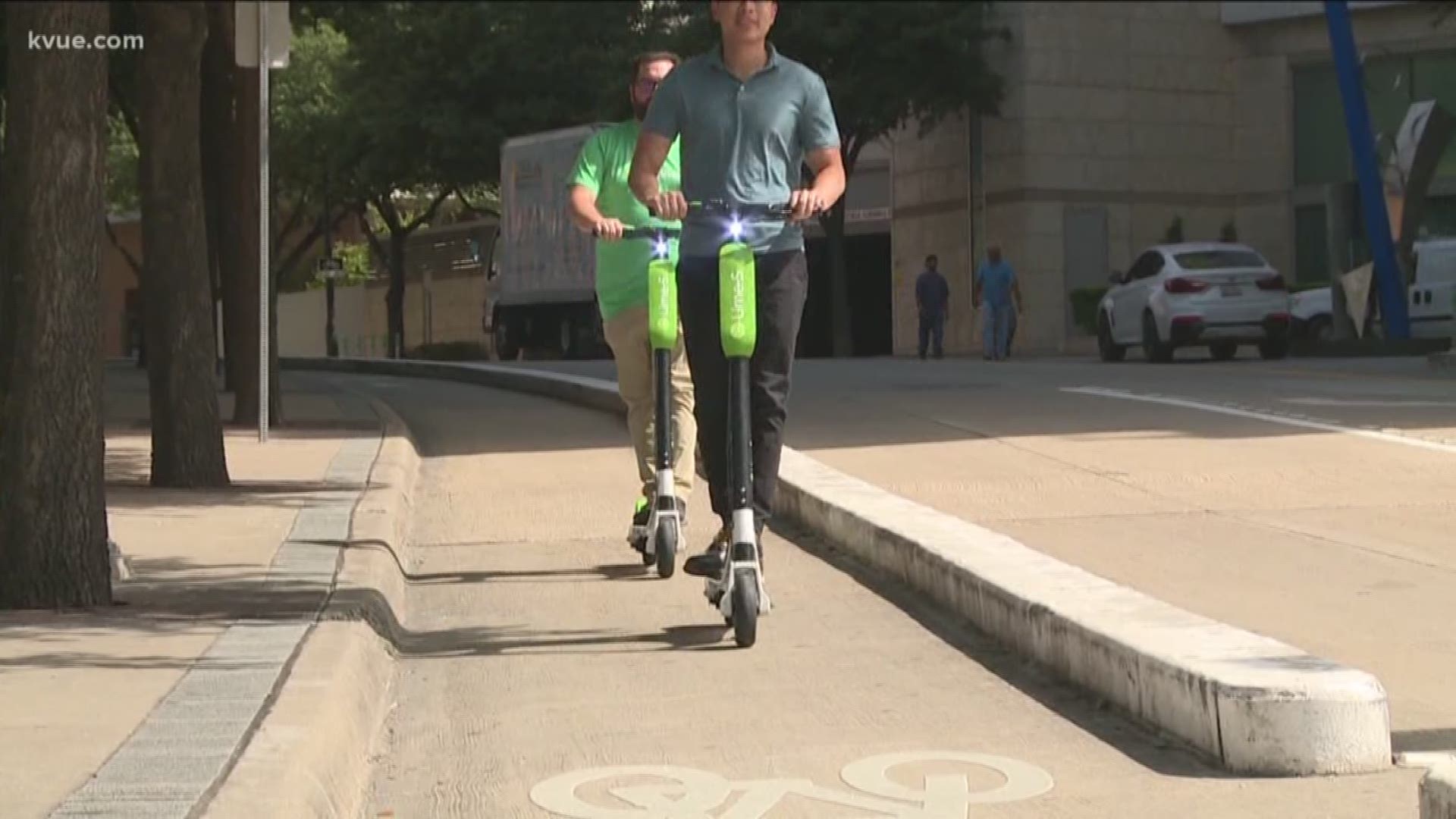AUSTIN, Texas — Editor's note: The related video was published in February 2020.
Starting April 29, Lyft will no longer be operating its dockless scooter service in Austin. The company said rideshare and Bay Wheels (bicycles) will continue to operate as usual.
Currently, the bicycles are not included on the City of Austin's list of devices that are licensed to operate in Austin.
According to Business Insider, the company recently announced it would be laying off nearly 1,000 employees. That amounts to about 17% of its workforce.
Since the coronavirus pandemic began, data shows fewer people are riding scooters on Austin's streets.
According to data provided by the Austin Transportation Department last week, riders took 6,718 trips between April 1 and April 22. That's a nearly 96% decrease in trips compared with the same period in March, which saw 148,560 trips.
Also, the month of March 2020 saw a year-over-year decline in trips, likely because of the SXSW cancellation.
Additionally, stay-home orders for Austin and Travis County went into effect on March 24, restricting travel for essential activities only.
In March 2019, riders took 689,271 scooter trips. That dropped to 159,095 scooter trips in March 2020, according to the data.
April's decline may also be related to limited scooter availability.
This week, however, Lime reactivated a small fleet of scooters in Austin to provide an essential service and offer free rides for health care workers and law enforcement officers through its Lime Aid program.
"The goal is to help workers who might otherwise have difficulty, either because they don't want to take public transit or rideshare or because the public transit is running with service reductions," according to Lime.
As of last week, Lyft and Bird reduced their number of deployed units significantly or, like Lime, created programs to reduce the cost for essential workers and had not paused services.
In addition, ATD has requested all shared micromobility companies to share how they plan to limit the spread of COVID-19.
KVUE reached out to all of the companies listed on ATD's website about their sanitization protocols. Below are some of the responses they shared last week:
Bird
- Increasing the daily frequency with which we clean and sanitize our vehicles in the field, including the sterilization of our helmets
- Increasing the frequency of our deep-clean “Bird Baths” that take place in our local service centers
- Providing extra gloves for our field service staff members as well as hand sanitizer for all Bird staff
- Closely monitoring the Centers for Disease Control (CDC), the World Health Organization (WHO) and other trusted federal and global agencies to inform our hour-by-hour decisions
"Bird is committed to serving the city of Austin and providing critical and essential mobility options to our community. We know that micromobility can add a lot of good by facilitating essential tasks like commutes, grocery shopping, and medical appointments, and we look forward to continuing to offer a safe transportation option as the community gradually reopens."
Lime
- We have enhanced our cleaning methods and increased the frequency of cleaning and disinfecting our scooters.
- In our offices and warehouses, we are distributing hand sanitizer. All of our mechanics and operators in the field are required to wear gloves and wash their hands regularly.
- We’re following the Centers for Disease Control and Prevention (CDC), the World Health Organization (WHO), federal agencies, and other global health organizations to collect the most up-to-the-minute information to ensure the actions we're taking are comprehensive and expedient. Based on this information, we will decide to continue, pause, or suspend operations in certain markets.
- Just as you should wipe down public and shared surfaces with disinfectant, we encourage you to do the same before riding a scooter or bike.
- You could also consider wearing gloves as a precaution as well as washing your hands before and after riding.
Lyft
"Our associates are frequently disinfecting all high contact surfaces on bikes and scooters. They do this every time vans are used to transport vehicles, bikes arrive at our depot, or scooters are docked for recharging, and they wear gloves when handling anything in the depot or at valets. We’re recommending that our associates also wear a cloth face covering, and we're distributing those wherever we can."
Spin
"Every time a scooter enters the warehouse or is collected from the street, the upper mast and handlebars are disinfected. When out in the field, our team is required to disinfect any scooter they come in contact with."
It is not yet clear if or when the scooter services will return to Austin streets.
PEOPLE ARE ALSO READING:

